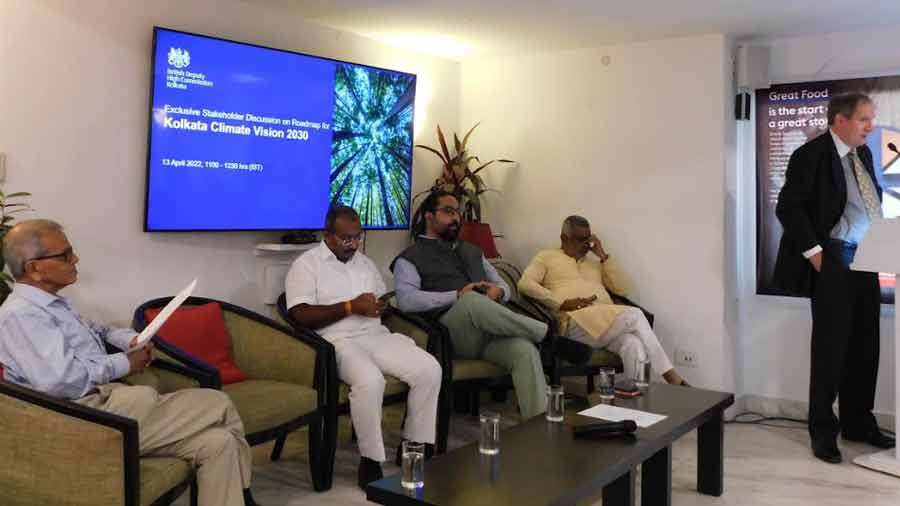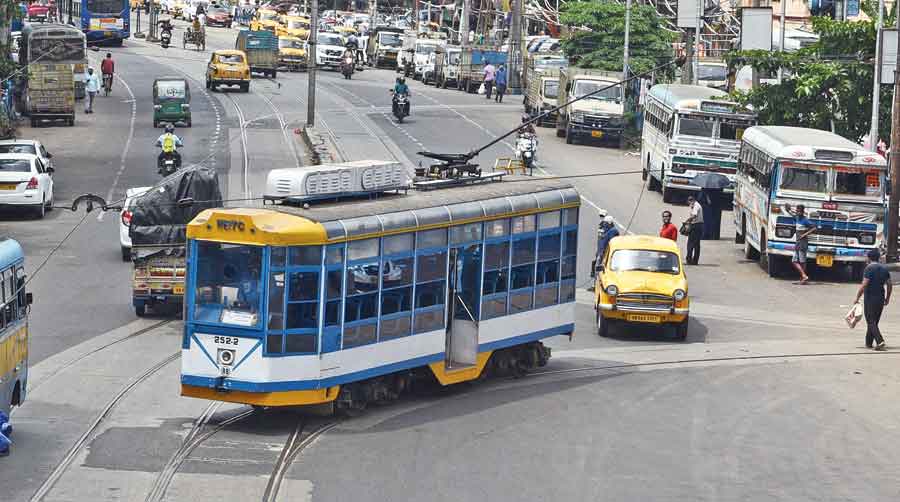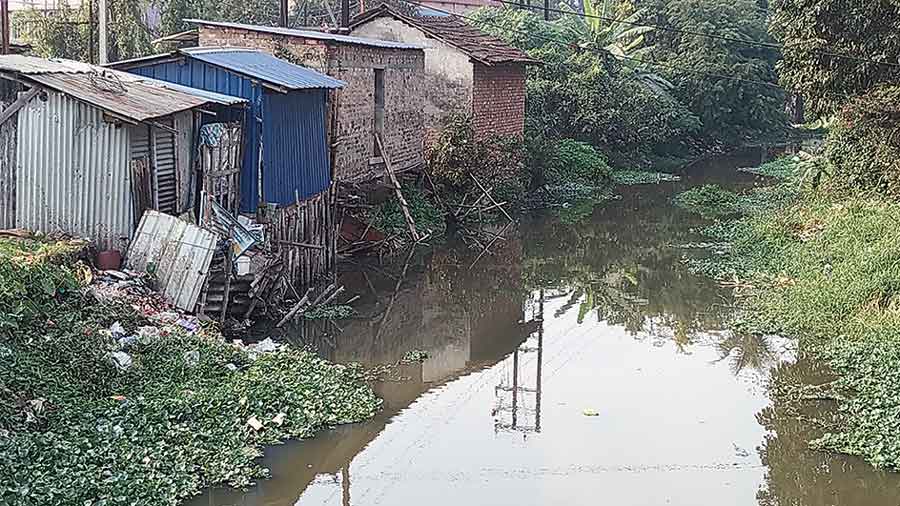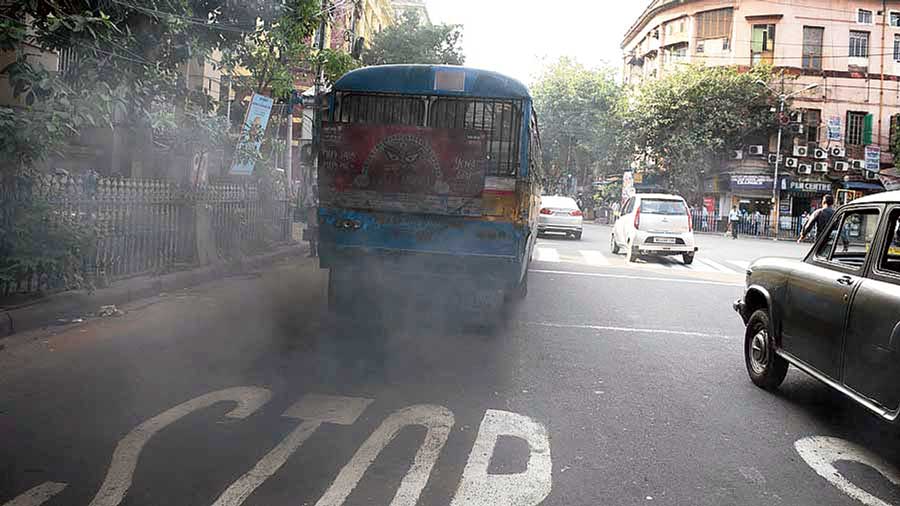An IIT Kharagpur professor has sought permission from the state transport department “to do an operational and technical audit of four to five tram routes” to understand what ails the struggling streetcars in the city.
“We want to see trams as an actively operating transportation mode in Kolkata and need to understand why trams are losing commuters,” said Bhargab Maitra, a transport expert who teaches at IIT Kharagpur, in a meeting on climate change on Wednesday.
Trams, alongside electrical vehicles, can play a key role in reducing the city's carbon footprint and in its fight against climate change -agreed experts and bureaucrats present at the meeting which was held at the British High Commission in Kolkata.
“Allow me to do an operational and technical audit of four to five tram routes to understand why the ridership is dwindling,” said Maitra who expressed hope that the trams can be revived with the involvement of all the stakeholders.
The meeting to discuss the roadmap for ‘Kolkata Climate Vision 2030’ was attended by senior officials from the state government, climate experts, the British deputy high commissioner Nick Low and Kolkata Municipal Corporation’s mayor in council Debasish Kumar.
The meeting was organised in the backdrop of several recent United Nations reports that have clearly underlined the acute vulnerability of Kolkata to the quickly rising climate threats like frequent cyclones, floods and extreme heat events.
While a range of key issues came up for discussion – from solar power to green housing to flooding – the issue of transport, particularly trams, dominated the discussion.
“We are at the crossroads … the decisions we make now can secure a liveable future,” said Low reminding that “Kolkata’s leadership role in combating climate change has won international recognition”.
The background note prepared by the British deputy high commission highlighted that the recent UN report, published this April, “has applauded Kolkata’s action on the public transportation system which has contributed towards bringing down the trend of greenhouse gas emissions per unit of gross domestic product to half in one decade”.
“Trams are the original electric vehicles,” said Rajanvir Singh Kapur, managing director, West Bengal Transport Corporation, who professed his admiration for trams and recognised its role in urban mobility. But also pointed out the need to reconcile environmental and economic needs.
According to sources, a major part of the administrative hierarchy in West Bengal considers trams unimportant and uneconomical and their continued indifference, over the years, has pushed the system towards a natural death.
Kolkata, one of the few cities in the world, which has had uninterrupted tramway services since 1902, had about 300 trams running regularly in the 80s. In 2014, the figure was around 100. In recent times, the figure has gone down to only 20 tramcars plying the city roads on an average every day.
“Kolkata city has a great heritage of harnessing electricity for transportation like the tramcars … Its pioneering efforts in e-mobility need to be sustained and expanded,” stated Suresh Kumar, state power secretary, present at the meeting.
“No point in turning trams as heritage objects in Kolkata, and rather they should be looked at as an active mode of transport in the city,” said a climate expert while outlining Kolkata’s increasing vulnerability to climate change.



